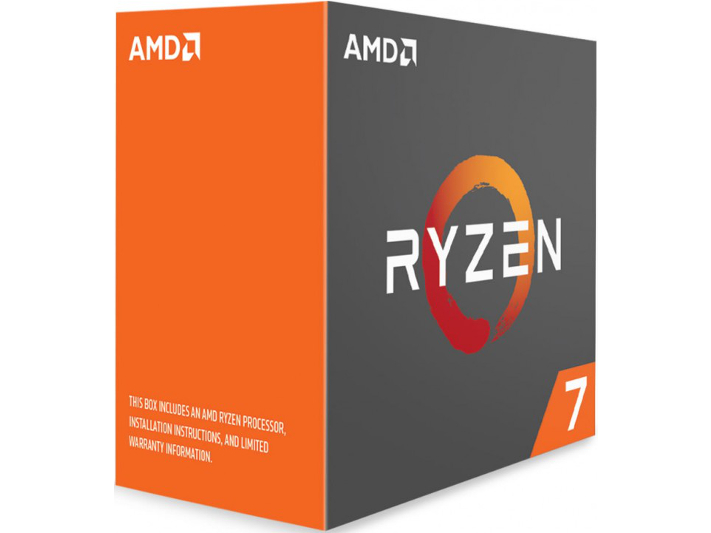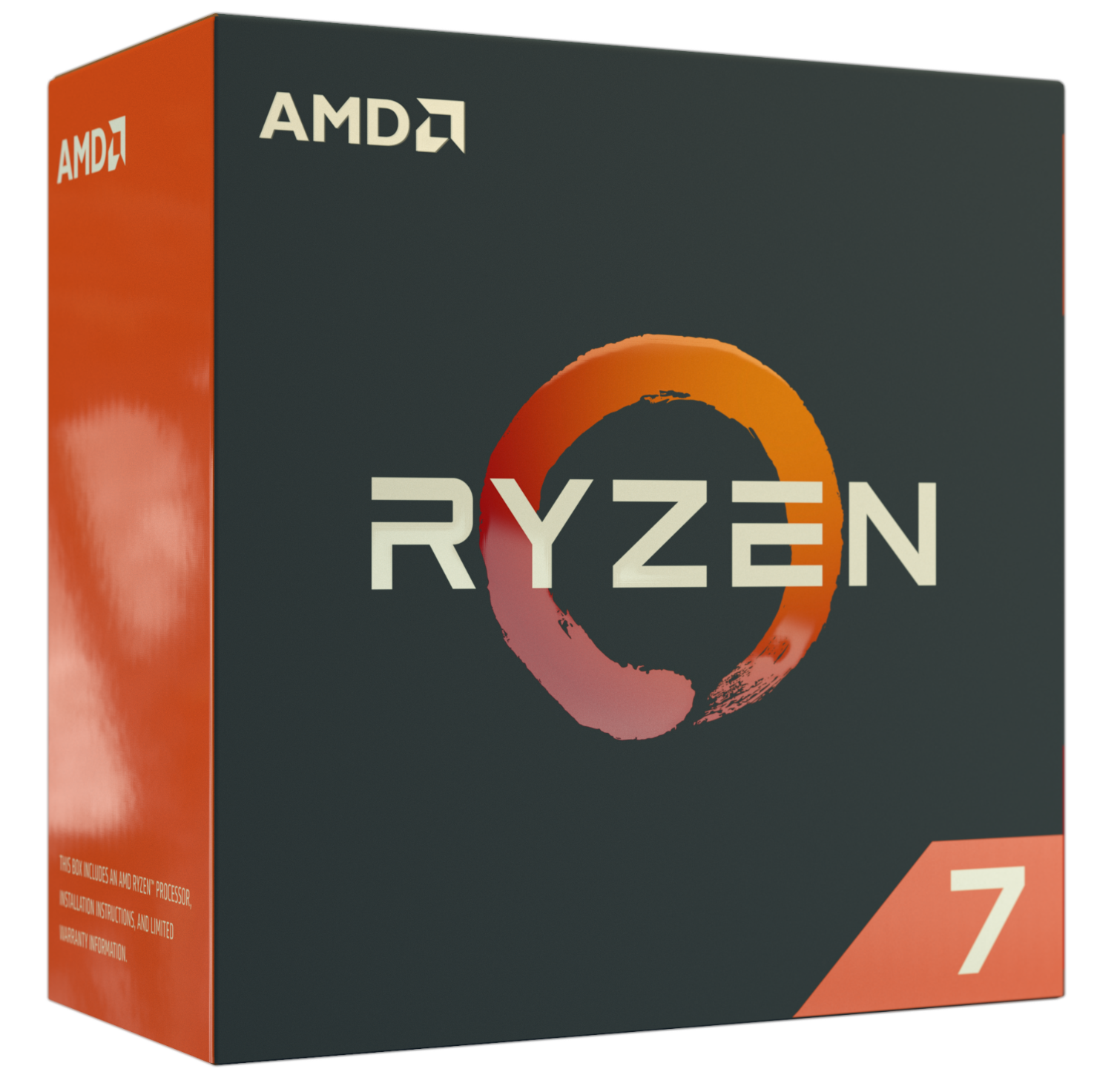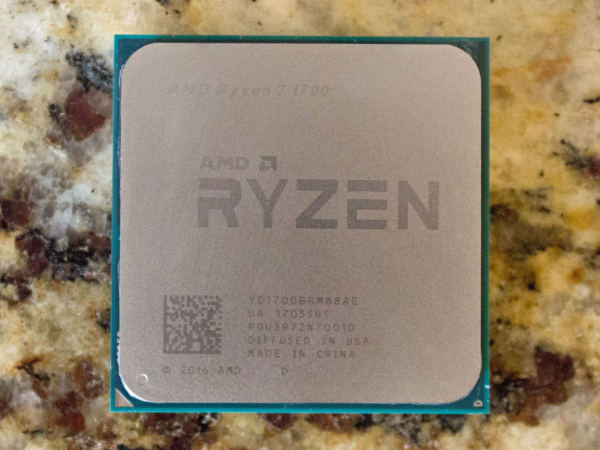Early Verdict
The 1700 performs well in heavily threaded workloads, but lags behind Intel's quad cores in most gaming scenarios. However, the Ryzen 7 1700 also offers the lowest entry-level price point for a modern eight-core processor and features enough overclocking headroom to trade blows with the more expensive Ryzen models.
Pros
- +
Unlocked ratio multiplier
- +
Low-cost eight core
- +
65W TDP
- +
Bundled cooler
Cons
- -
Lower stock performance than other Ryzen 7 models
- -
Lower game performance than Intel processors
- -
Poorly optimized software ecosystem
Why you can trust Tom's Hardware
Introduction
AMD is trying to claw back lost market share with its eight-core Ryzen processors, and in the process, the company is generating a tremendous amount of excitement. Most of the enthusiasm stems from competitive pricing and solid performance in content creation and productivity workloads, even if Ryzen isn't shaping up to be universally superior, as many hoped prior to launch. The chips still suffer an IPC deficit compared to Intel’s Kaby Lake processors, and the unique Zen microarchitecture falls behind in some games at lower resolutions. While the Ryzen 7 CPUs we've tested provide a smooth experience in most titles, they don't oust Intel from its comfortable position atop the benchmark charts. This makes it difficult to universally recommend those high-end parts.
But it appears the bottom of AMD's Ryzen 7 stack offers the best value. The company claims that its Ryzen 7 1700 is the most efficient eight-core CPU available. And priced at $330, it's undoubtedly the cheapest one with modern amenities. The 1700 wields the same design as its more expensive counterparts, including the same Zen-based architecture, two CCXes enabling 16 logical cores, and 16MB of L3 cache. It also sports an unlocked ratio multiplier, AMD's SenseMI suite, and Socket AM4 compatibility.
As a result, the Ryzen 7 1700 might hit a value sweet spot that the $500 Ryzen 7 1800X and $400 1700X couldn’t.



The 1700’s 65W TDP stands out as its most notable differentiator compared to the higher-end 95W Ryzen 7s. A more conservative power rating means lower voltages (and heat), so its 3 GHz base and 3.7 GHz boost frequencies understandably trail the 1700X and 1800X as well.
Both X SKUs do benefit from AMD's XFR (eXtended Frequency Range) technology, which provides an additional 100 MHz over the boost ceiling if your thermal solution is beefy enough. In contrast, the 1700 comes equipped with a reduced XFR feature set that doesn’t boost beyond 3.7 GHz, though it does facilitate an all-core 3.1 GHz boost in threaded workloads. You also save a few bucks with the bundled 95W Wraith Spire cooler, and although we wouldn’t recommend using the stock heat sink for overclocking, it’s a nice addition.
The 1700 wades into a brutally competitive segment; its $330 price tag is only slightly lower than the $350 Core i7-7700K rocking a 4.2 GHz base and 4.5 GHz Turbo Boost clock rate. The Ryzen 7 1700 beckons with twice as many cores and double the L3 cache, though that doesn't translate to more performance in every application. After all, even Intel's Core i5-7600K competes with the top Ryzen 7s in certain workloads.
The Ryzens we've tested thus far suffer curious performance losses in some games. But AMD contends that many developers will patch their software to improve frame rates. Encouragingly, Stardock/Oxide recently patched Ashes of the Singularity: Escalation to optimize for Ryzen. Valve also released a patch for Dota 2. Both updates improve performance, and more important, they hint at what we might see from other devs in the future.
Get Tom's Hardware's best news and in-depth reviews, straight to your inbox.
In the meantime, Ryzen 7 1700 offers a great starting price for eight cores and an unlocked multiplier. We think it can match its bigger brothers with a bit of tuning. Let's test that theory out.
MORE: Best CPUs
MORE: Intel & AMD Processor Hierarchy
MORE: Everything Zen: AMD Presents New Microarchitecture At HotChips
MORE: Intel Kaby Lake Core i7-7700K, i7-7700, i5-7600K, i5-7600 Review
MORE: Broadwell-E: Intel Core i7-6950X, 6900K, 6850K & 6800K Review

Paul Alcorn is the Editor-in-Chief for Tom's Hardware US. He also writes news and reviews on CPUs, storage, and enterprise hardware.
-
mitch074 And how about testing with some AMD GPU? Seems Ryzen gets the short hand of the stick when using an Nvidia GPU... https://forums.overclockers.co.uk/threads/nvidia-dx12-driver-holding-back-ryzen.18774744/Reply -
envy14tpe Why no 1440p or 4k gaming? Who buys 1700 for 1080p gaming? In gaming, the new 1700, 1700x, 1800 don't compare to 7700k in gaming. But i don't see that like all other testing methodologies done by likes of gamernexus and what not.Reply
EDIT. Based on the downvoting of this comment it seems AMD lovers are a little butt hurt. -
ykki Thanks for the review. Will Tom's bench (or has already benched) the R5s with AMD GPUs? (i5 + 1060, i5 + 480, R5 + 1060, r5 + 480)?Reply -
Paul Alcorn Reply19526350 said:Why no 1440p or 4k gaming? Who buys 1700 for 1080p gaming? In gaming, the new 1700, 1700x, 1800 don't compare to 7700k in gaming. But i don't see that like all other testing methodologies done by likes of gamernexus and what not.
Here is some recent testing at 1440p. It includes the 1700, as well.
http://www.tomshardware.com/reviews/amd-ryzen-vs-intel-kaby-lake-gaming,4977.html
-
envy14tpe Reply19526465 said:19526350 said:Why no 1440p or 4k gaming? Who buys 1700 for 1080p gaming? In gaming, the new 1700, 1700x, 1800 don't compare to 7700k in gaming. But i don't see that like all other testing methodologies done by likes of gamernexus and what not.
Here is some recent testing at 1440p. It includes the 1700, as well.
http://www.tomshardware.com/reviews/amd-ryzen-vs-intel-kaby-lake-gaming,4977.html
That shows the new AMD cpus as is. From all I see the i7-7700k blasts the new AMD 1700, 1700x, 1800x series at 1440p +. That's important to keep in mind for gamers that want the most out of a CPU n high end GPU. -
ddpruitt Replyeven if Ryzen isn't shaping up to be universally superior, as many hoped prior to launch.
This makes it difficult to universally recommend those high-end parts.
Why do they have to be universally superior? They do a killer job on highly threaded workloads and are a lot cheaper than equivalent Intel. Sure gamings a wash but they're all playable. Aiming for universally superior is shooting for the moon and doesn't happen even with a single Intel chip.
But looking at these figures on their own can be misleading. Remember that Intel's top Kaby Lake-based CPU demonstrated a commanding lead in the previous page's AutoCAD workloads, so it ends up offering superior performance per watt.
Any chance you can multiply the numbers out so we can compare the differences? -
TJ Hooker So I have to ask, is there any reason to buy a 1700X/1800X over a 1700 if you're comfortable with overclocking?Reply -
Ian_85 Can you please repeat this test after each of the Ryzen bios updates in April and May?Reply
I think people would be interested to show just how much performance in a new CPU architecture improves in the months after its initial release. -
elbert Reply
I dont believe that has Ashes of the Singularity updated tests. Good review and I would like to see more. Now that all the Ryzen's have been benchmarked on 1080p maybe 1440p and 4k would make a good review. With and without SLI/crossfire also just to see how it works for Ryzen. Possibly Gskills could pitch in some of their Flare X 3466 RAM for Ryzen.19526465 said:19526350 said:Why no 1440p or 4k gaming? Who buys 1700 for 1080p gaming? In gaming, the new 1700, 1700x, 1800 don't compare to 7700k in gaming. But i don't see that like all other testing methodologies done by likes of gamernexus and what not.
Here is some recent testing at 1440p. It includes the 1700, as well.
http://www.tomshardware.com/reviews/amd-ryzen-vs-intel-kaby-lake-gaming,4977.html
